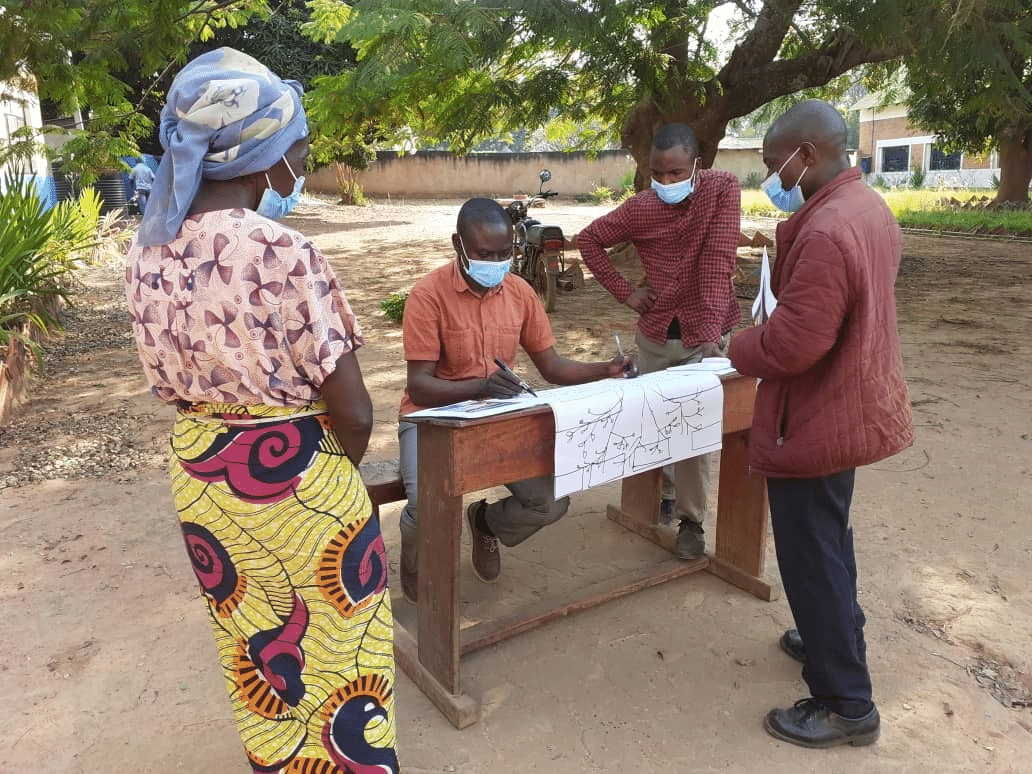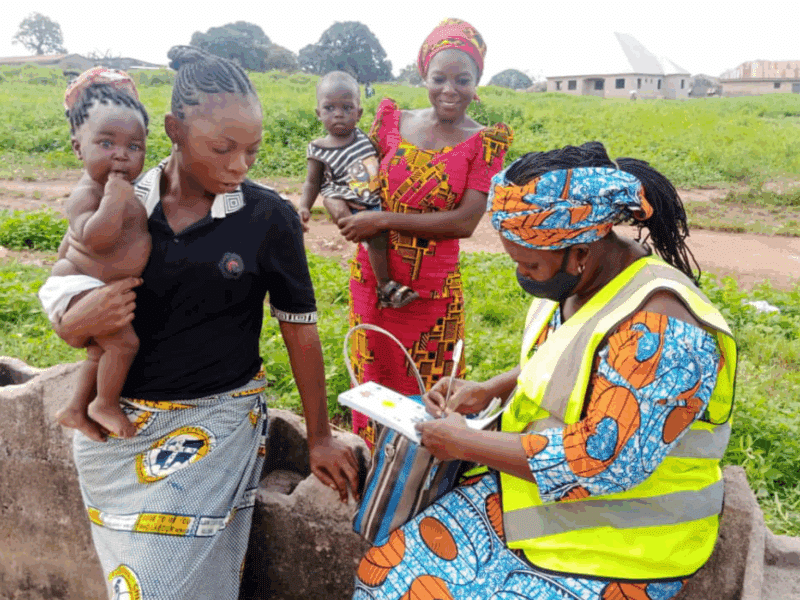
The VIVA! campaign, initiated as part of the CCP-led Breakthrough ACTION project, has also helped the local community better understand the value of saving money to pay for health expenses and has increased the use of some health services. The findings come from the DRC’s South Kivu province where CCP interviewed 236 residents about their experiences with the behavior change campaign, designed to increase demand for health services in the region.
“We are seeing some very positive health outcomes,” says CCP’s Kathryn Sugg, MSPH, a senior research data analyst. “But we have to make sure people continue these new behaviors.”
VIVA!, an integrated health campaign, was created by Breakthrough ACTION with the Ministry of Health and the USAID Integrated Health Program. Interventions being implemented under Viva were developed using a human-centered design process led by partner ThinkPlace US, and a community engagement approach championed by partner Save the Children. The VIVA! umbrella campaign promotes essential family health practices touching on a range of health areas, including family planning, maternal and child health, nutrition, water and sanitation hygiene and malaria through a variety of channels. Since launching, more than 85,000 people across three DRC provinces have been reached with VIVA! messages and activities.
Among the activities of the VIVA! campaign is Rencontres de Couples (or couples’ get-togethers in French), which are essentially small group health games for men and women to attend together to understand more about family planning, prenatal care, breastfeeding and more.
One of the greatest perceived barriers to seeking care in health centers is cost, particularly the cost of malaria treatment, prenatal care services and childbirth. During couples’ get-togethers, couples participate in a cost comparison activity, a fun, interactive discovery process to demonstrate the cost of health services is no greater than that of commonly consumed household items like salt, sugar, phone credit, hair cut or a bottle of beer. Couples are also provided with a “savings box” which they can use as a piggy bank at home to save for important medical services such as prenatal care and care-seeking for fever in children under age 5 (a symptom of malaria).
Many of those interviewed say they are seeing changes in health behaviors since the program began.
“Since the couples’ get-together, pregnant moms have started attending [prenatal care] accompanied by their spouses,” one woman told researchers.
Said one of the men interviewed: “Before, the situation was catastrophic, some pregnant women did not understand why they should start [prenatal care] at four months, others believed that [family planning] is a sin, there was a difficulty in accessing medical care when people do not have the cash.”
Through the VIVA! social and behavior change activities, this man became more involved in his family’s health. Now, he says, “we find that in some households there is a climate of dialogue between husband and wife about how to handle family planning, prenatal care, and childhood vaccination.”
The interviews were conducted using open-ended questions to elicit answers to what the most significant behavior change has been seen since the VIVA! campaign began. An additional assessment of the overall program will be conducted in 2022 and 2023.
Florence Mpata, CCP’s research director in the DRC, is encouraged by the results he has seen so far.
“The most unexpected changes observed thus far was the fact that men had decided to accompany their wives to health services,” he says. “This is a very significant breakthrough as it shows that certain cultural barriers and norms are giving way to a behavioral revolution among local populations.”
Some participants reported that norms seemed to be shifting in favor of family planning, particularly in more rural areas.
“I have taken a contraceptive method and I am very grateful to the VIVA! campaign for getting my husband to accept so that there would be a consensus for planning,” one woman said.
Radha Rajan, DrPH, a CCP research and evaluation officer, says that the Breakthrough ACTION team will continue to work toward increasing the role of men in family planning. An upcoming study will focus on exploring social norms around men’s involvement in family planning decision-making among couples.
“We want to know more about how we can influence the couples dynamic to ensure that men start and continue to be involved in family planning and other important health care decisions for the whole family,” she says.





